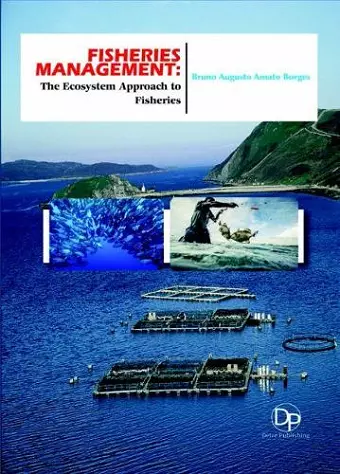Fisheries Management
The Ecosystem Approach to Fisheries
Bruno Augusto Amato Borges editor
Format:Hardback
Publisher:Delve Publishing
Published:30th Nov '16
Should be back in stock very soon

With the growth of the fishing industry, a number of changes should be taken to ensure that the activity will grow and prosper for many generations.
The main current discussion with regard to the development and production of fisheries is the concern with the environment coupled with the search for new technologies. So grows the need to discuss the situation and seek improvements aimed at the sustainable development of the activity and prosperity for future generations. This way starts a different approach regarding the ecosystem with respect to fisheries production. The term “Ecosystem Approach to Fisheries” (EAF) was adopted by the FAO Technical Consultation on Ecosystem-based Fisheries Management held in 2002 (FAO, 2003). This term (EAF) is presented by Ward et al. (2002) as “an extension of conventional fisheries management recognizing more explicitly the interdependence between human well-being and ecosystem health and the need to maintain ecosystems productivity for present and future generations, e.g. conserving critical habitats, reducing pollution and degradation, minimizing waste, protecting endangered species”. Currently, many terms are used to name and describe the same concept as: ecosystem-based fisheries management (EBFM), ecosystem approach to aquaculture (EAA), environmental management, biodiversity management and ecosystem approach. The ecosystem approach to fisheries seeks to understand the existing relations and their characteristics within the environment, with the objective of improving the management and use of resources by activity. In addition it is extremely important to consider the impact that fisheries production has been producing in each ecosystem and globally, so that decisions involving changes in management can be evaluated. In this context, the main objectives of this book is to present the current situation of the risks and challenges of fisheries production and its impact on the environment, as well as different management techniques already in use and the search for alternatives and improvements.
ISBN: 9781680958553
Dimensions: unknown
Weight: unknown
194 pages